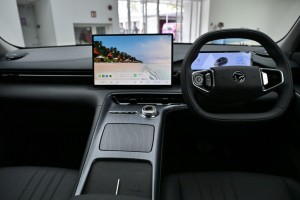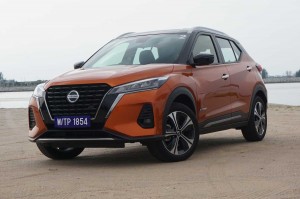BMW brake recall and VW job threat deepen German industry crisis
By BLOOMBERG | 11 September 2024
FRANKFURT: German carmakers are sinking deeper into a crisis undermining the future of the country’s most important industry, with BMW AG warning that profits will get hit by a costly brake problem and Volkswagen AG scrapping job protections that workers have enjoyed for three decades.
BMW shares plunged after the company disclosed the spiralling cost of a recall affecting 1.5 million vehicles due to faults with their Continental AG braking systems.
VW confirmed plans to end the employment guarantees, lamenting the nation’s loss of competitiveness.
The one-two punch on Tuesday dealt a further blow to the German economy, which has been reeling since Russia cut off cheap gas supplies.
The country’s carmakers have struggled with the transition to electric vehicles, and BMW said tepid demand in China poses a further threat to sales and profits.
VW last week shocked workers in Germany with plans to potentially shut factories in the country for the first time in its near nine-decade history.
The corporate bombshell came a day after a political wake-up call from state election results in which populist parties made big gains.
The decision to end job security agreements sets VW up for lengthy clashes with labour representatives. Cutbacks at the Wolfsburg-based company are harder to push through than elsewhere.
Half the seats on its supervisory board are held by labour representatives, and the German state of Lower Saxony - which owns a 20% stake - often sides with trade union bodies.
"We have to get Volkswagen to a point where we can cut costs in Germany to a competitive level,” said Gunnar Kilian, VW’s board member of personnel. The company needs to be able to "invest in new technologies and products on its own.”
The automaker, which employs almost 300,000 people in Germany, has defended its plant closure plans, saying flagging car sales have left it with about two factories too many.
Now BMW, a rare bright spot among Germany’s industrial stalwarts, has had its wings clipped by Continental, another example of a century-old company struggling through the transition to EVs.
The carmaker expects earnings to fall significantly below last year’s €17.1 billion (RM82bil) while forecasting its auto-making operating margin would be as low as 6%, compared to a previous low of 8%.
While the cars remain safe, drivers may have to push the brake pedal harder and some assistance systems don’t work as effectively, according to a BMW spokesman.
For Continental, the issues will be a drag on plans for a potential listing of its auto business, the latest move in a string of troubled attempts to revive returns.
BMW’s shares closed 8.7% lower in Frankfurt, cutting the company market valuation by roughly €5 billion (RM24bil).
Continental shares fell 10.5% and VW fell 3.4%. Continental said it supplies the system to other carmakers, though only BMW is affected by the problem because of a specific configuration it uses.
The profit warning reveals the extent of the damage from the faulty brakes, which have already appeared in recalls earlier this year.
A total of about 1.2 million vehicles have been delivered to customers and are subject to the recall, while about 320,000 are still with the manufacturer, a BMW spokesman said.
The problems are a setback for a company that’s been doing better than some of its rivals on EVs. BMW pulled ahead of Tesla Inc. and led Europe’s electric-vehicle market for the first time in July.
BMW, which sold 2.25 million vehicles last year across its nameplate and Mini brands, is examining whether the repairs can be done via a software update or need physical fixes, according to a spokesman. The recall should be concluded this year, with a chance of some overrun into 2025.
For Continental, the recall deals another blow to a company already beset by a litany of problems.
As well as a deep restructuring that’s leading to the loss of 7,000 jobs at its auto unit, European Union authorities raided the company in January over suspected price fixing with other tire makers.
More recently, profits have started to sag. It has faced scrutiny as part of its role in the diesel emissions scandal, and in April was fined €100 million for failing to prevent staff from taking part.
According to Bloomberg Intelligence automotive analyst Gillian Davis, the braking system problems could cost Continental as much as €75 million (RM359mil) to fix.
BMW, which previously forecast a slight drop in earnings before tax, said the recall will result in additional warranty costs in the high three-digit million range in the third quarter.
The carmaker said it’s currently weighing compensation claims against Continental.
Tags
Autos BMW
Reviews

7.6
Maserati GranTurismo (Mk2) Modena: Sharp and smooth operator

6.8
Triumph Tiger 900 GT Pro: Multi-talented adventurer

Hyundai Ioniq 5 N: Born rascal

6.6
Husqvarna Svartpilen 401: Inspiring retro design

8.8
smart #1 (Premium): Agile, engaging, roomy, premium motoring

6.6
Suzuki V-Strom 250 SX: Multi terrain warrior

Proton e.MAS 7 impresses in quick dynamic driving exercises

Nissan Kicks e-Power: Kicking off a new efficiency
Videos

StarCarSifu Editors' Choice Awards 2024: Top winners

The Snowball – Lamborghini’s Heartwarming Christmas Story of...

EVOGO battery swapping solution showcased at IAA Mobility 20...
